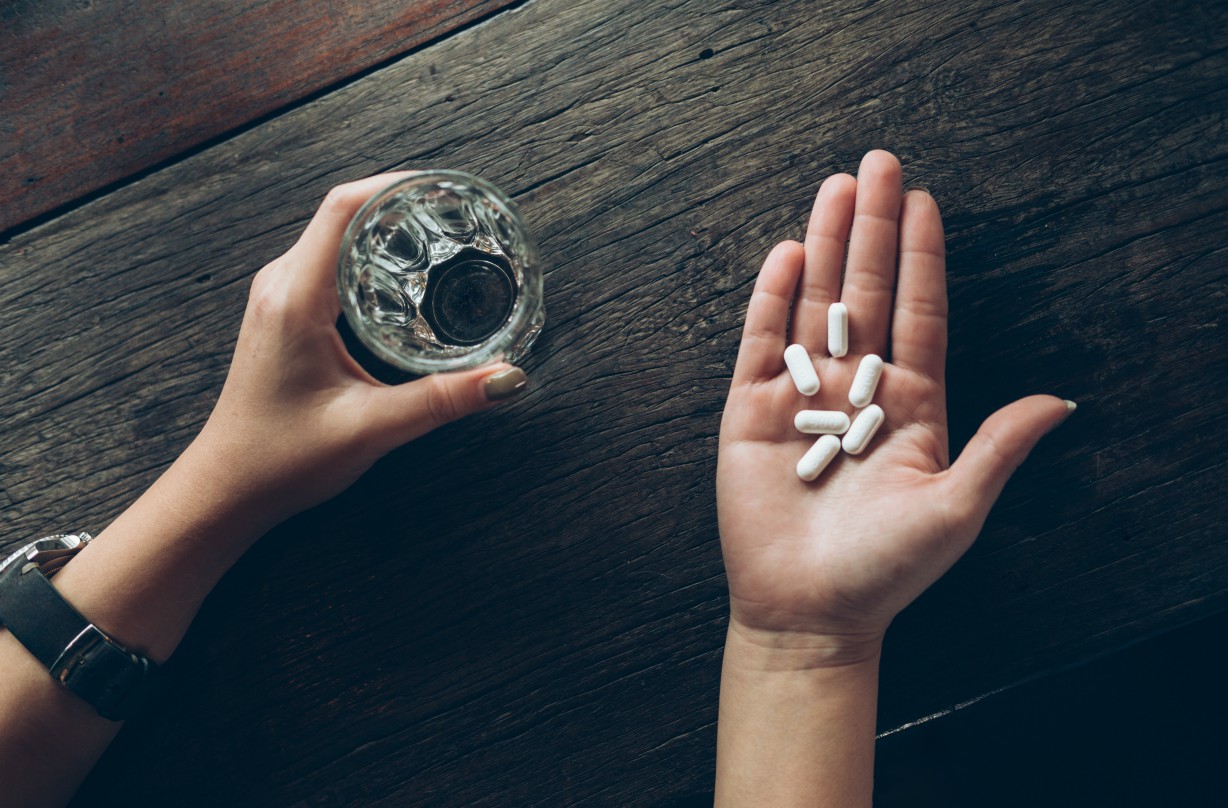11 things you need to know about medicine before buying over the counter


When treating minor illnesses and ailments, there are plenty of effective medicines that can be bought over the counter from the chemist or supermarket.
And your local pharmacist is also on hand for self-care tips and advice on the correct medicine to take.
"If your symptoms suggest that there is something more serious, pharmacists will then raise a red flag and say whether you need to see a GP," says Shirin Alwash, pharmacy manager and Royal Pharmaceutical Society ambassador.
Here are some essential facts to remember when self-medicating.
How to organise your medicine cupboard
Sensible storage
"Storing your medicines properly ensures that they work as they should," says Shirin. It’s best to keep them in a dry cupboard, away from light and moisture and out of reach from children. Also, don’t be tempted to chuck away the original container or packaging as these have the important info on how to take them.
Check the date
Just like food, medicines have a shelf life. Check the expiration date on the packet or bottle and don’t use a medicine beyond this date because it may not be as safe or effective.
"Most people don’t realise that out-of-date medicines, either opened or unopened, can be returned to a pharmacy for safe disposal," advises Shirin.
GoodtoKnow Newsletter
Parenting advice, hot topics, best buys and family finance tips delivered straight to your inbox.

Any alternatives?
When reaching for cough syrups to ease a tickle, check the small print. Remedies that contain dextromethorphan will suppress a cough, but can make you feel dizzy, drowsy or nauseous too. They can also be toxic if taken in large doses, or when combined with antidepressants or medication for Parkinson’s disease.
The NHS recommends the use of hot lemon and honey as a natural alternative after studies showed it can be just as effective at reducing cough symptoms.
MORE: How remedies for colds you'll need this winter
Limit your use
Decongestants work well to relieve a stuffy nose, but if used for too long can have the opposite effect.
Shirin says, "When you overuse a nasal decongestant, instead of making you feel better, the medication further irritates your nasal lining, making you feel more bunged up."

Pain relief: what you need to know
Which pill should you take?
Different painkillers will treat different types of pain more effectively. "Paracetamol is used to ease headaches and most non-nerve pains, and aspirin is an everyday painkiller for aches and pains such as headache, toothache and period pain. It can also treat colds and flu-like symptoms, and be used to bring down a fever," says Shirin.
"Ibuprofen, diclofenac and naproxen are all non-steroidal anti-inflammatory drugs (NSAIDs), and these work better when there’s evidence of an inflammatory cause, such as arthritis or an injury."
Allergy alert
For hay fever, insect bites and stings, hives or nasal allergies caused by animals or dust mites, there are two main types of OTC antihistamines.
Shirin explains that first-generation antihistamines such as chlorphenamine, hydroxyzine and promethazine were among the first that scientists developed. Second-generation antihistamines such as cetirizine, loratadine and fexofenadine, are the newer medicines that tend not to have a sedating side effect.
"These non-drowsy antihistamines are generally the best option, as they’re less likely to make you feel sleepy during the day," says Shirin.
Food rules
Some painkillers can upset the stomach, so the NHS suggests taking these with a small amount of food, such as a couple of biscuits, a sandwich or a glass of milk.
"Ibuprofen or aspirin have to be taken with food, so avoid taking these on an empty stomach," warns Shirin. "Paracetamol doesn’t irritate the stomach lining however, so can be taken without food."

Medication safety tips
Medicine dosage
A fifth of the UK population may have misused over-the-counter medicines – either by taking the wrong dose or being unaware of safe medicine combos, according to a survey. Read the instructions on dosage and timings and remember what painkillers can be combined.
Don’t forget!
Aspirin should never be given to a child younger than 16, unless a doctor prescribes it.
"There’s a possible link between aspirin and Reye’s syndrome in children. Reye’s syndrome is a very rare illness that can cause serious liver and brain damage," explains Shirin.
Avoid alcohol
There are good reasons why we’re told to lay off the booze when medicating.
"Drinking alcohol can affect the absorption of some medicines," says Shirin. Some drugs when combined with alcohol will have serious side effects too, so always check with your pharmacist about what’s safe to take.
How can you save money on medicine?
You can buy generic, rather than brand-name medicines if you want to save money on medicine. It’s actually the same drug if the dosage and formulation are the same, and you can look on the packaging for a matching ‘PL’ number (product licence code) to be sure.
"Regardless of cost, branded or generic medicines are made to the same high standards, so you can be reassured your medicine is safe," says Shirin.

Senior writer Ali Horsfall has almost 15 years of experience as a journalist and has written for national print titles and women’s lifestyle brands including Woman & Home, Woman, Woman's Own, BBC magazines, Mothercare, Grazia and The Independent.